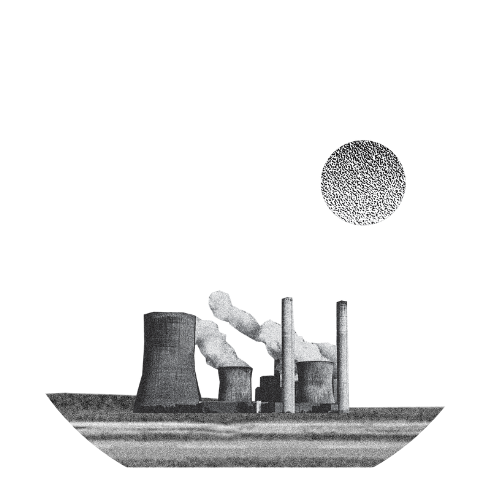What we do: Housing
.png)
The share of tenants in the housing market is constantly growing, and in large cities in the Czech Republic they currently account for up to a third of the population. Their protection, however, is minimal. Rental prices are rising much faster than salaries and lease contracts are usually concluded for only one year, sometimes even less. People in rented accommodation are therefore living in constant insecurity and their housing costs are increasing.
.png)
Climate Justice
Global heating caused by two centuries of economic growth based on ever-increasing consumption of fossil energy causes escalating disruptions to our climate which endanger both human welfare and the long-term habitability of our planet. We are in the middle of a climate crisis - manifesting itself also in the current European droughts - which weighs heaviest on socially disadvantaged groups of people and thus deepens the already gross social inequalities. This is true both within the Czech republic, and throughout the world, where the changing climate has the worst impact on the poor countries of the Global South..png)
Housing
The share of tenants in the housing market is constantly growing, and in large cities in the Czech Republic they currently account for up to a third of the population. Their protection, however, is minimal. Rental prices are rising much faster than salaries and lease contracts are usually concluded for only one year, sometimes even less. People in rented accommodation are therefore living in constant insecurity and their housing costs are increasing..png)
Democratization of energy
There are approximately one million people living in energy poverty in the Czech Republic and we are one of them. The energy crisis is causing major energy companies, including fossil fuel companies, to make record profits, while consumers face ever-increasing energy costs. Decarbonising the energy sector and fundamentally transforming the energy market are essential to avoid the worst impacts of climate change. However, if we remain passive consumers, we will continue to be exposed to market fluctuations and uncertainties..png)
Education
Our educational projects open up debate about the causes of social and environmental problems and develop the skills needed to solve them. We organise ourselves according to the principles of self-management and organise training courses in which we introduce self-management and help to apply it in practice. We use non-formal education methods and learn from each other..png)
Solidarity Economy
What is the economy and what or who is it for? The original meaning of the word refers to "household management". A well-managed economy could administer our planetary “household” to meet the needs of all within the boundaries of our planet. Instead, the current economy hoards meaningless wealth in the hands of a few, while denying access to basic needs for the majority and devastating the ecological foundations of life on our planet.
Financing the climate collapse
In the world of financial institutions, the fossil fuel industry still enjoys great support. If we are to avoid the worst effects of the climate crisis, we need financial institutions to stop supporting coal-fired power stations and to refuse to participate in the planned development of gas infrastructure, waste incineration, unsustainable biomass management and other unethical activities of fossil fuel companies.